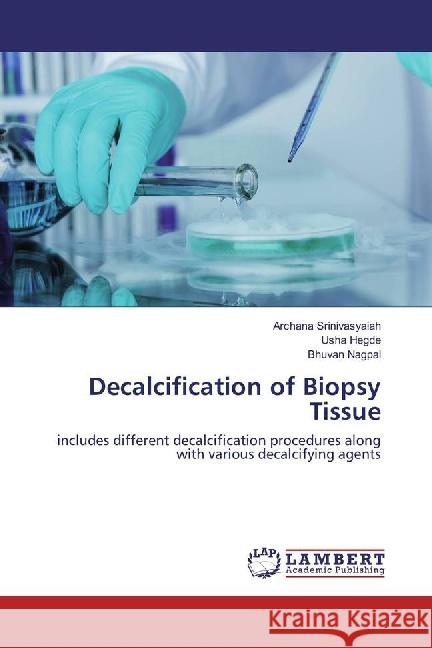Decalcification of Biopsy Tissue : includes different decalcification procedures along with various decalcifying agents » książka
Decalcification of Biopsy Tissue : includes different decalcification procedures along with various decalcifying agents
ISBN-13: 9783659864322 / Angielski / Miękka / 2016 / 72 str.
Decalcification of Biopsy Tissue : includes different decalcification procedures along with various decalcifying agents
ISBN-13: 9783659864322 / Angielski / Miękka / 2016 / 72 str.
(netto: 152,93 VAT: 5%)
Najniższa cena z 30 dni: 160,21
ok. 10-14 dni roboczych.
Darmowa dostawa!
Decalcification is commonly employed in most histopathology laboratories for the microscopic examination of bone and other calcified tissues. Plastic processing without decalcification may produce superior results in terms of eliminating shrinkage and for demonstrating osteoid versus mineralized matrix but may give poor cytological detail and is a much longer process. The diagnosis of non-metabolic diseases of bone such as infections and tumors requires good cellular morphology and a quick result to allow rapid therapeutic intervention for optimal patient care. Most unsatisfactory results with decalcification can be attributed to overexposure to the decalcifying agent used and due to inadequate control procedures. In an attempt to reduce the commonly encountered artifacts of tissue shrinkage and adverse staining results obtained with rapid decalcification using strong mineral acids such as nitric acid, a rapid method of decalcification was devised which gave excellent and reproducible results. This book describes the different procedures for decalcification and the successful monitoring of the process along with some popular options for the choice of reagents.











